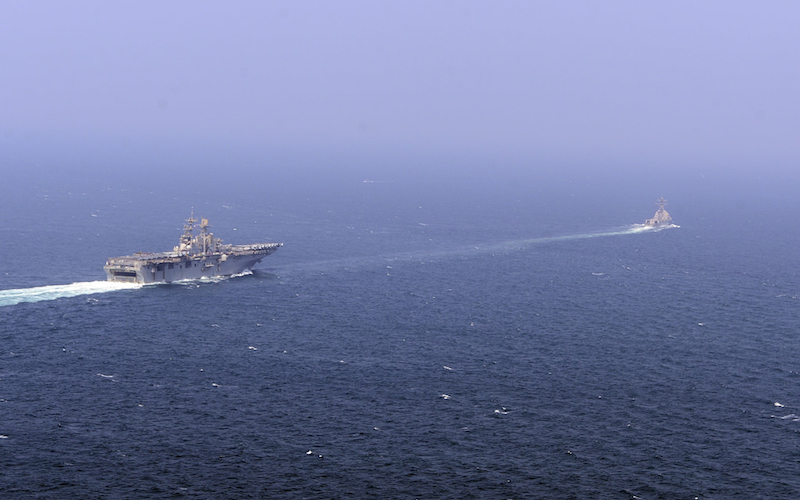
Russia’s Impact in Yemen
Since March the Houthi rebels have launched an offensive on the southern regions of Yemen and have the country’s capital under their control. President Abd Rabbuh Mansur Hadi has fled the country. In order to protect the Yemeni people and their legitimate government, Saudi Arabia with the support of the U.S. and 9 Persian Gulf countries launched a military offensive.
As tensions increase between the West and Russia, Moscow is cementing relations with Iran and seeking a stronger position in the Middle East.
On March, 27, Hossein Amir-Abdollahian, Iran’s Deputy Foreign Minister, visited Russia to negotiate several regional issues. The Iranian diplomat described relations with Russia as a model and explained Iran’s push back against the military invasion of Yemen. Teheran and Moscow are traditionally on the same side of issues in the region, including Yemen.
Teheran’s liaison with the Houthis is not only historical and religious, but also military and political. In March 2012, The New York Times reported that the Islamic Revolution Guards Corps (IRGC) is supplying large arms shipments to the Houthi rebels. In January 2013, an Iranian arms shipment, including MANPAD, was found aboard an intercepted ship heading to Yemen.
The Kremlin, with the assistance of Teheran is escalating the situation in the region in return for military, political, and economic activity. On November 21, 2014, Saleh Ali al-Sammad, the chief of Ansar Allah Yemeni rebels’ political bureau, said that the movement aimed at mending fences with Russia in the context of countering U.S policy. “We are seeking smooth relations with the Russians in countering the American project that is trying to control the whole world.” That may have been the reason why the Houthi leaders, at that moment, contacted Kremlin’s emissaries.
A goal of fomenting the unrest in Yemen could be an attempt to establish a Shia home front in the eastern province of Saudi Arabia, where the Shias account for nearly 60% of the population.
Despite the fact that Yemen does not have a well-developed oil industry, the province of Taiz faces Bab el Mandeb, where 3,8 million barrels of oil daily pass through toward Europe, Asia, and the U.S. Together with Teheran’s control over the Strait of Hormuz, blocking or threatening these straits could result in a temporary halt in oil exports from the Gulf countries or redirect the routes around the African continent resulting in a 10-15 day delivery time increase, thus triggering a sharp rise in world oil prices.
Consequently, according to our estimations, there are grounds for a possible Moscow-planned integrated offensive with the participation of Teheran in order to launch a crisis within Yemen’s territory. Iran is likely to shut down the Strait of Hormuz in response to Saudi Arabia’s military campaign in Yemen and the expected losses among the Shia population, including Houthi fighters as a result of a full-scale use of the air power by the allies.

